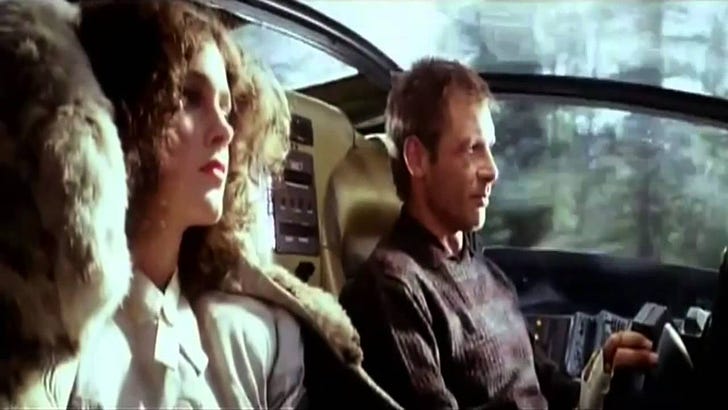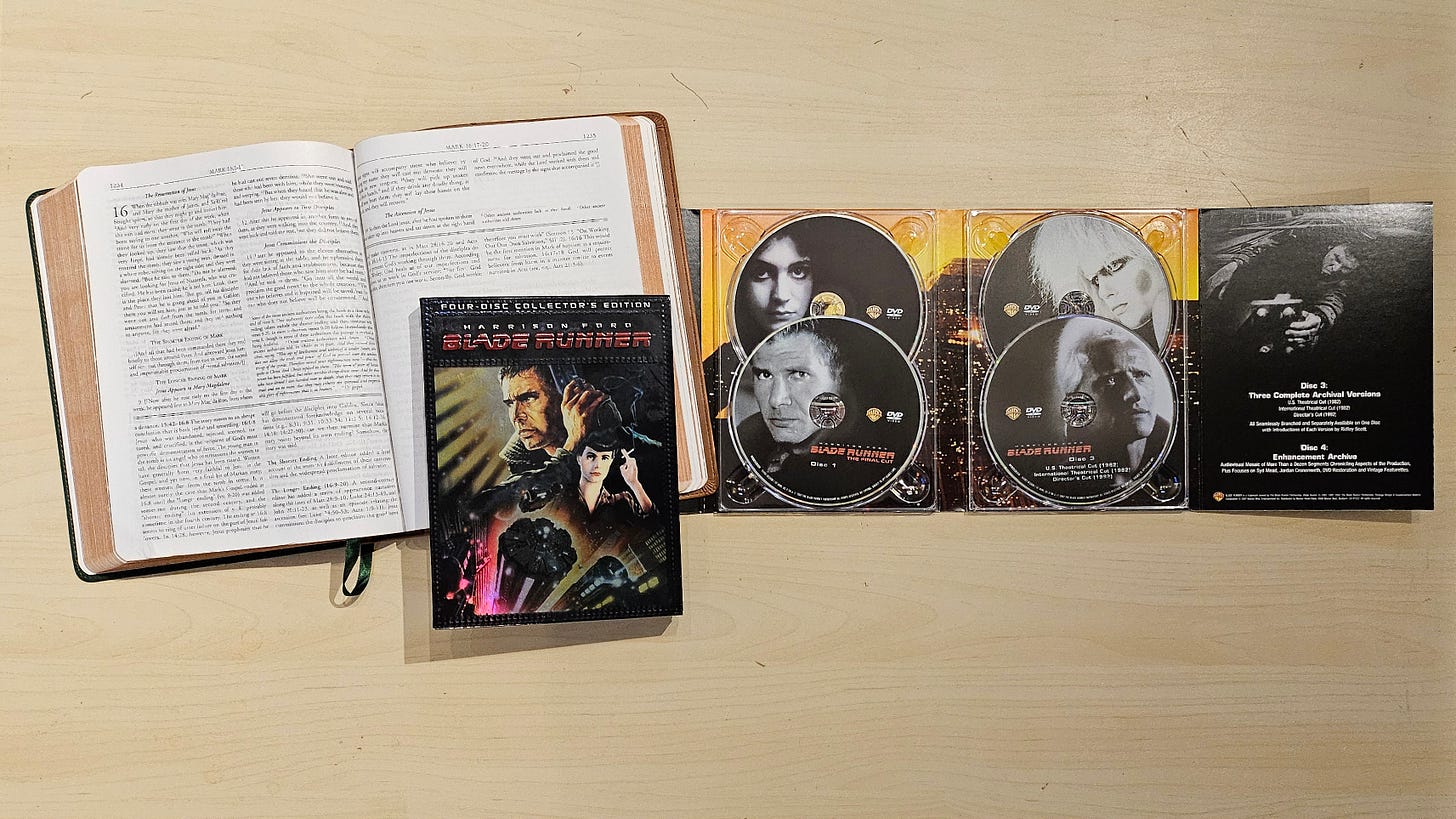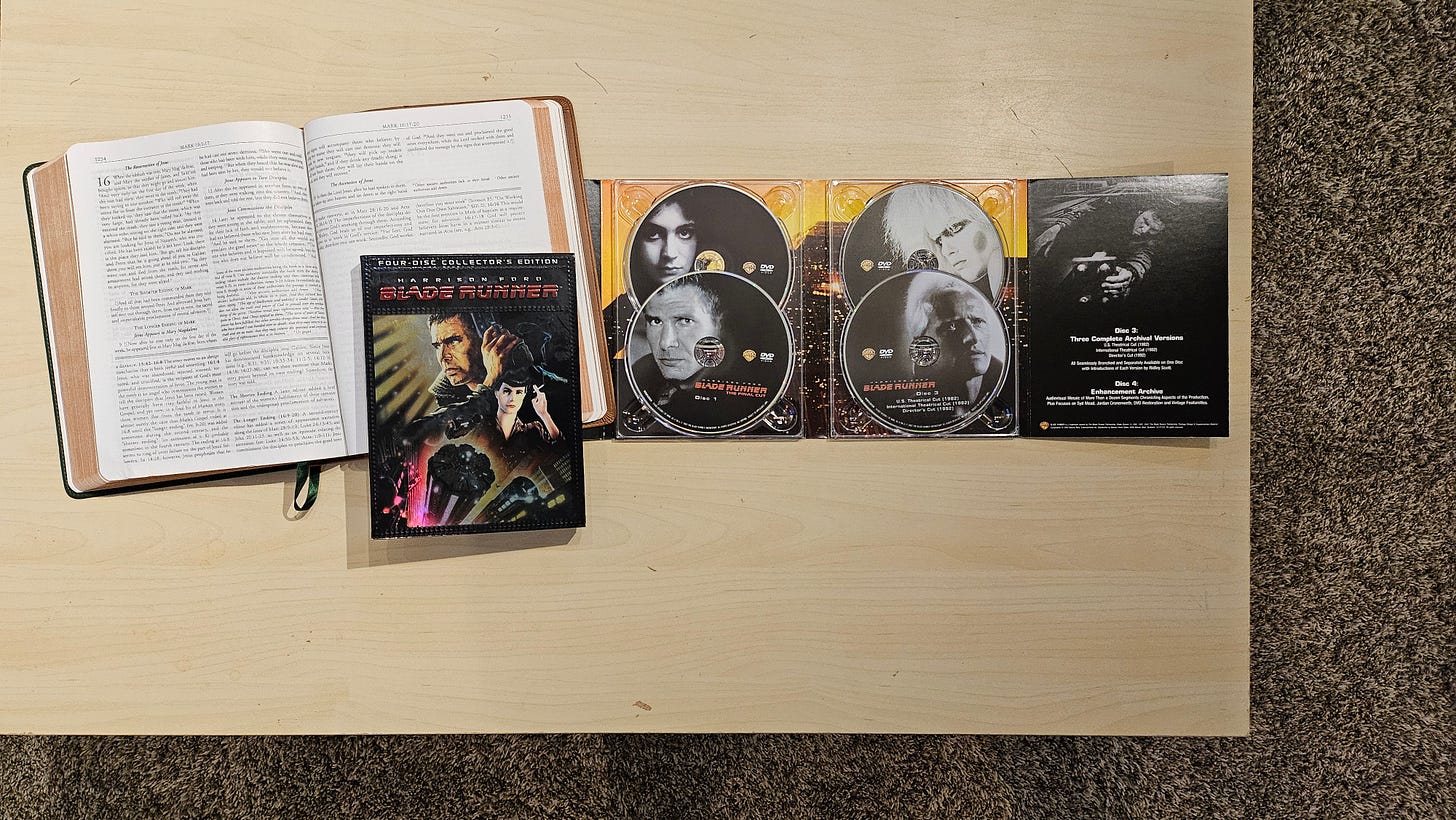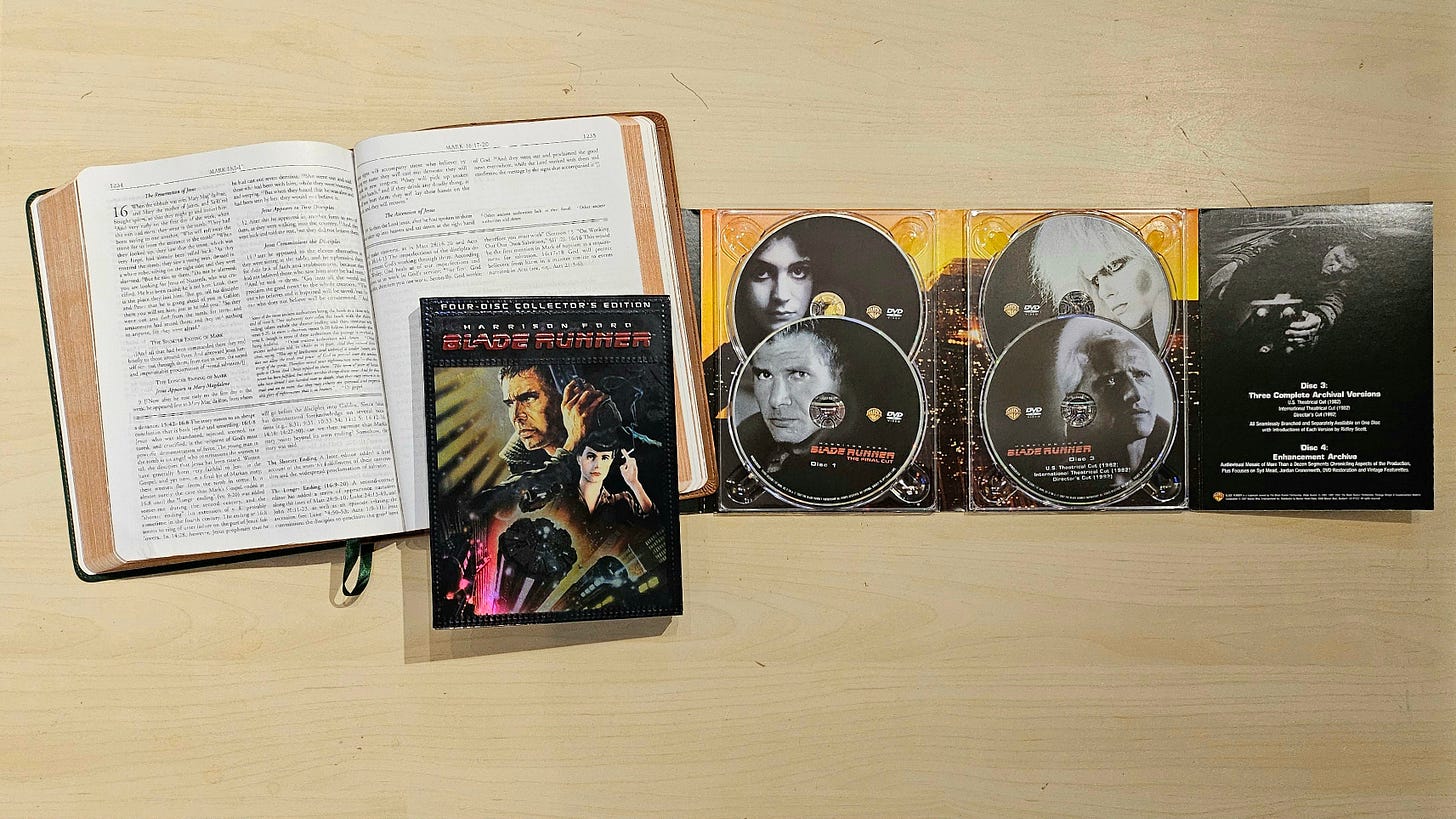Mark 16:1-8 | Revised Common Lectionary | EnterTheBible.org
Easter Sunday | 03.31.2024
Context: In the Gospel of Mark chapter 15, Jesus is put on trial, crucified, died, and was buried. Like the other gospels, Mark has an additional chapter centering on the resurrection of Jesus and a simple truth: death does not get the final word! Unlike the other gospels, Mark has three endings. Various ancient authorities have one or two or all three, depending on the manuscript. Here is the first two and the beginning of the third:
The Original Ending of Mark
6 But he said to them, “Do not be alarmed; you are looking for Jesus of Nazareth, who was crucified. He has been raised; he is not here. Look, there is the place they laid him. 7 But go, tell his disciples and Peter that he is going ahead of you to Galilee; there you will see him, just as he told you.” 8 So they went out and fled from the tomb, for terror and amazement had seized them, and they said nothing to anyone, for they were afraid.The Intermediate Ending of Mark
[[And all that had been commanded them they told briefly to those around Peter. And afterward Jesus himself sent out through them, from east to west, the sacred and imperishable proclamation of eternal salvation. Amen.]]The Extended Ending of Mark
[[9 Now after he rose early on the first day of the week, he appeared first to Mary Magdalene…]]
Blade Runner | 1982
IMDb | Letterboxd | RRMC
Context: Deckard (Harrison Ford) is a “blade runner” who hunts down rogue replicant synthetic humans who have deviated from their programming to help humans. His job is to “retire” them, terminally. When he falls in love with a beautiful replicant named Rachael (Sean Young), he determines their only choice is to run away before any authorities can stop them - including his fellow blade runners. Their escape is depicted at the end of the film, but in a variety of ways. There are several “cuts” of the movie, and have a different ending, some of which leave their fate ambiguous, some which make it clear, and some which raise questions about Deckard’s true identity. Here are key lines of dialogue from the endings from the three most-popular cuts of the movie:
The Theatrical Cut Ending of Blade Runner
Deckard drives Rachael through the countryside. He speaks in voiceover.
Deckard: Gaff had been there, and let her live. Four years, he figured. He was wrong. Tyrell had told me Rachael was special. No termination date. I didn't know how long we had together. …Who does?
The Director’s Cut Ending of Blade Runner (Alternative Takes)
Deckard drives Rachael through the countryside. She is smiling and turns to tell him how she feels.
Gaff: You’ve done a man’s job, sir. But are you sure you are a man? It’s hard to tell who’s who around here…
Rachael: You know what I think? I think today is the best day of my life. You know what else I think? You and I were made for each other.
The Final Cut Ending of Blade Runner
Gaff: It’s too bad she won’t live. But then again, who does?
Commentary:
“A famous filmmaker once said that films are never completed, they are only abandoned. So rather than live with my ‘abandoned’ movies, I decided to go back and complete them.”
- George Lucas on the Star Wars trilogy special edition films, 1997
[Quite possibly quoting himself in the third person.]
[[Or, building off someone else’s quote about art overall.]]
Okay. Buckle up.
The Original Opening Paragraph
All you need in order to know the gospels in the Bible are different is to be aware that there is more than one gospel. These first four books of the New Testament that tell the story of the life, death, and resurrection of Jesus do so in their own way. They have different starting points, different details, different languages, different first audiences, different theology. They all point to the same story, but in their own way.
The Intermediate Opening Paragraph
[Mark was likely the first to be written, though many had an early appreciation of Matthew that saw it prominently displayed as the first gospel canonically.]
The Extended Opening Paragraph
[[Strangely enough, while John came way after the other three, Luke likely had the same writer as Acts, which follows all four gospels, so even though Luke and John appear chronologically canonically, their placement separates the two-part story of Luke-Acts.]]
As I said: buckle up.
One of the reasons we think Mark was written first is the abruptness of the ending. If Mark had used Matthew or Luke as a source, there’s little reason the writer would have seen the amazing power of the resurrection of Jesus as depicted in Matthew 28 (great chapter, 5 stars, would follow again!) or in Luke 24 (Jesus revealing his identity on the road to Emmaus in an ancient version of TV’s Bloopers & Practical Jokes, which also would have been hosted by Dick Clark). Mark’s ending instead is short, so short that it literally says the women who went to the tomb ran with fear and didn’t tell anyone what they saw.
Well, obviously they told someone, because now we know. Later manuscripts add how they later told Peter, and then there is a bold theological proclamation about Jesus, as if to say make no mistake, this is “the why” of Jesus. If you have a good study Bible handy, that section likely has
[[Then, there is much, much more to the resurrection story that goes on for several more verses from other later manuscripts. And if you have a good study Bible handy, that section likely has footnotes and is in double brackets like this.]]
Some people are challenged by this. Other people challenge some people because of this. All of those same challenges can come up with all of those differences between the gospels. If they can’t get the story the same way, if they add more details later, if “the greatest story ever told” is told in multiple ways, what can we actually know about it? Or put trust in it? Or have faith in it? What do we do when the ending has multiple endings?
How about we do this: we believe that resurrection is possible, even if we see its story differently.
Reading the multiple endings to the Gospel of Mark in preparation for Easter Sunday this year, I thought of movies that get multiple cuts. I started this entry with a quote from George Lucas, who may or may not have been quoting an actual filmmaker, in terms of a “famous filmmaker” but rather adapting an old and oft-adopted adage about art overall (is this quote a “special edition” director’s cut of the actual quote?), and I think what he says is germane here:
Blade Runner has a particular place in science fiction film history. It comes after decades of sci-fi films [some great, some not] and before a few more decades of the same [[great, and not]]. It was influenced and it influences. Like Mark was the first gospel that influenced Matthew and Luke, it was also influenced by Hebrew Bible or Old Testament writings, as well. It is a milestone of the genre and while it’s paced differently than many stories today, it has a lot to say about humankind, a commentary as told through the eyes of androids.
Blade Runner is infamous, as well, for having several cuts or versions of the film for several reasons. Studio interference cut scenes, expanded others, and introduced - rather insistently and potentially unnecessarily - a voiceover to the film. But that’s the US theatrical version. There was also a European edition. And a workprint edition. And a director’s cut. And a final director’s cut. And probably more that I’m not even thinking of here. For an exhaustive listing of all of the differences between the various cuts, IMDb details every element extended, deleted, alternative, and/or otherwise different from one another.
Buckle up for this question: Which Blade Runner is Blade Runner?
It depends on who you ask. For some, it’s the version they saw first. Or the most. Or understood the most (and when it comes to Blade Runner, that can truly make a difference!). For me? I dunno. I’ll probably go with the Final Cut. I love the bold crispness of the ambiguous yet slammin’ (literally!) ending, and at the very least because it excises the voiceover. There are some films where voiceover is absolutely integral and you cannot have the movie without it (Fight Club). There are others where voiceover at specific points enhance it (Terminator 2: Judgment Day), and others where you have enough to know what’s going on without it. Blade Runner, to me, is one of those movies. I can’t think of a single thing it adds that helps me understand what’s going on better. I mean, just watch this brief scene between Deckard (Harrison Ford) and Bryant (the recently late and always great M. Emmet Walsh) is clear without a voiceover featuring a Bored Ford saying the N-word:
That said, the theatrical with the voiceover is the cut I’ve seen the most. But it’s not the one I go back to now.
How about we do this: we enjoy the movie, even if we have our preferred cut.
The Ending Paragraph
Have a blessed Easter!
The Intermediate Ending Paragraph
[And take a night to enjoy Blade Runner, no matter which cut you decide to go with this time.]
The Extended Ending Paragraph
[[Of course, you could always watch them all back to back to back to back. If not that, then at least enjoy Roy Batty’s farewell soliloquy. And remember if this is how androids, skinjobs, replicants, we speak with each other, perhaps we might do better at resurrecting the mutual gift of listening to one another.]]






